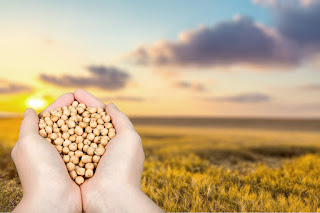Soybeans (known scientifically as Glycine max) are from an essential plant that hails from East Asia and its beans are usually consumed in various forms. It’s packed with B vitamins and other nutrients, grows annually, and produces an abundance of oil and protein for a good price, so what’s not to like about this versatile food plant? One of the biggest thing about soybeans are its isoflavones. The three main isoflavones are genistein, daidzein, and glycitein. They’re important because they may the reason behind the low occurrence rate of of prostate cancer in Asian countries.
The West should take note and follow Asian soy consumption as an example of better prostate health. Although doctors may believe that soy consumption in Asia is only found in condiments, there is actually a wide range of soy intake that goes well beyond condiments. Japanese older men had an average of 40 mg of daily soy intake. When aiming for more soy and protein, natural products trump their processed counterparts.
Because isoflavones have a chemical structure similar to the female hormone estrogen, they are often referred to as phytoestrogens. However, isoflavones and estrogen exert different physiologic effects on the body. If you want more protein, more muscle mass, and less saturated fat, soy foods are your friend. There is evidence to suggest reduced stress on the kidneys when consuming soy as well as reduced exercise-induced oxidation and inflammation.
Other great component of soybeans include phytosterols, which are shown to have cholesterol-lowering activity; phospholipids, used as natural food emulsifiers while contributing to the structure of the cell membrane; saponin, found to have various biological effects, including anticancer, anti-oxidative,
hepatoprotective, anti-hyperlipidemic, etc.; and last but not least ferritins, a multimeric iron storage protein good for those who are anemic.
Summary of the Health Benefits of Soybean:
1. Soybeans, in conjunction with astragalus, improve prostate health and may relieve the symptoms of an enlarged prostate, including:
a. A weak or slow urinary stream
b. A feeling of incomplete bladder emptying
c. Difficulty starting urination
e. Urgency to urinate
f. Getting up frequently at night to urinateg. Soybeans also have a myriad of other benefits, which you can learn more about in this FREE eBook

No comments:
Post a Comment